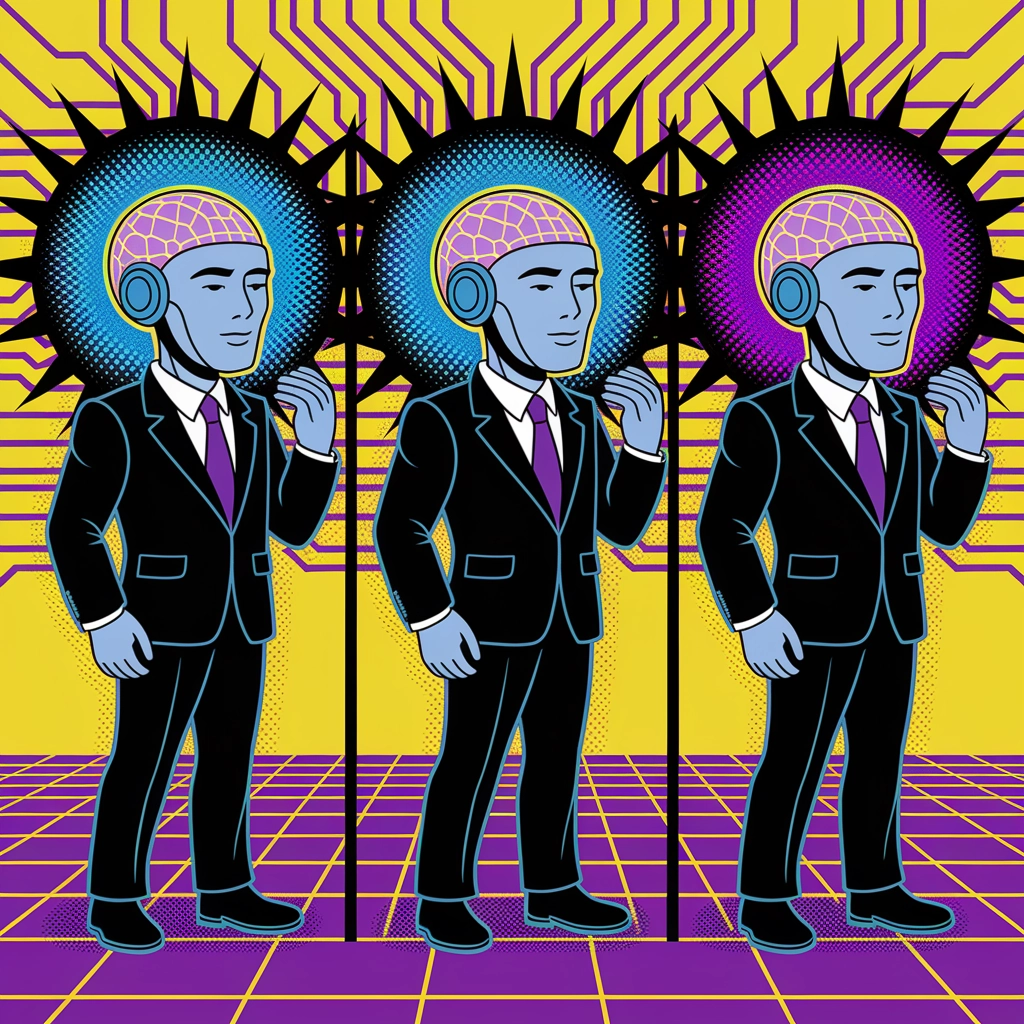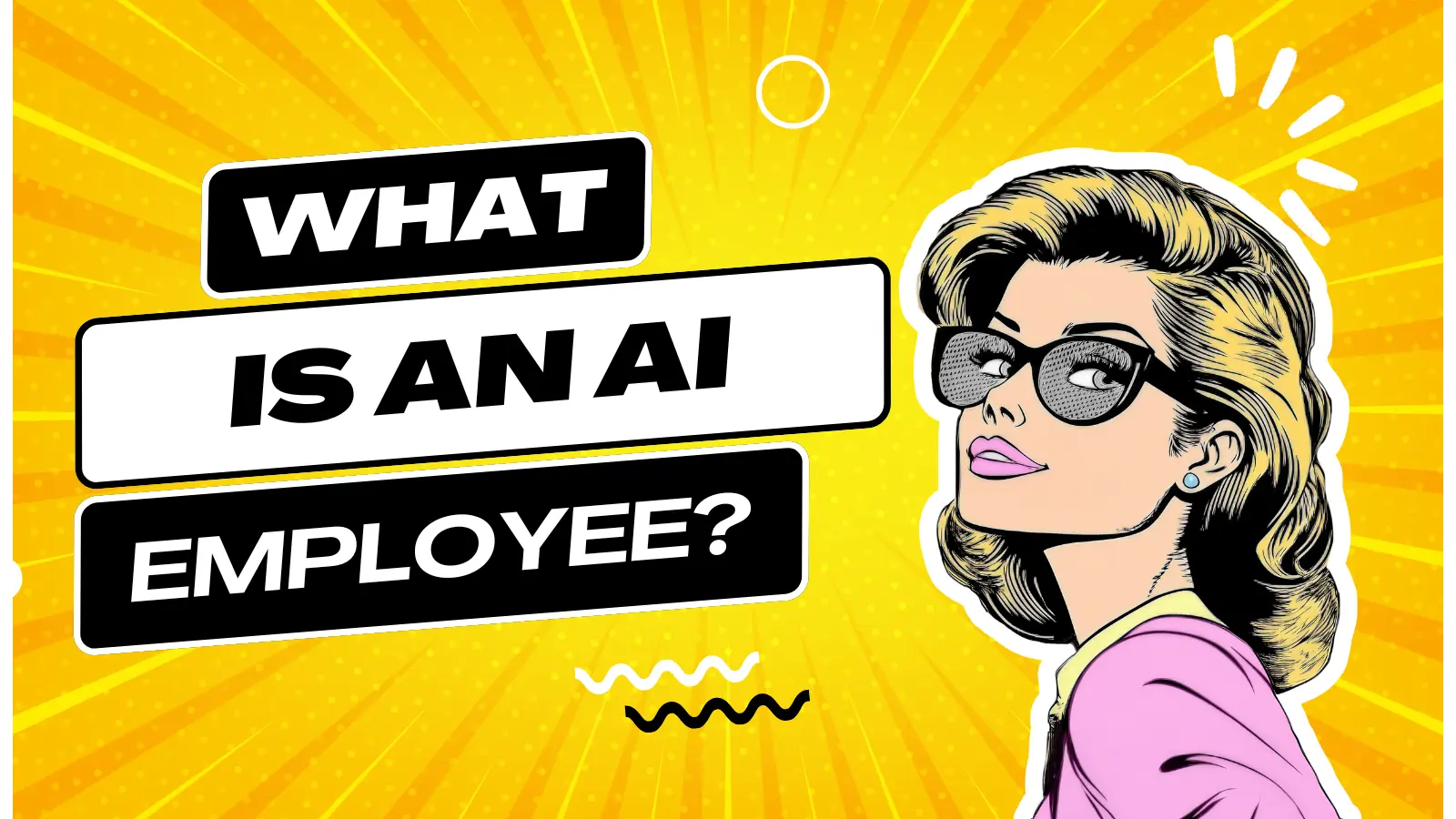Remember when "using AI" meant copying and pasting prompts into ChatGPT and hoping for the best? Those days are gone. Enter the world of AI employees.
But what exactly is an AI Employee? And how do they differ from traditional AI tools you may have used?
An AI employee is a sophisticated AI agent designed to perform specific roles within your organization. Unlike basic AI tools that wait for commands, these digital team members proactively work in the background, learn from interactions, and maintain awareness of your business context.
AI employees don't just execute tasks—they understand your business, anticipate needs, and continuously improve without requiring you to become an AI prompt engineer.
How AI Employees Differ from Traditional AI Tools
Let's break down the key differences between traditional AI tools and true AI employees:
| Traditional AI Tools | AI Employees |
|---|---|
| Require specific prompts for each task | Work autonomously with minimal guidance |
| Have no memory between sessions | Maintain context and learn over time |
| Need technical expertise to use effectively | Designed for non-technical users |
| Function as isolated tools | Integrate with your existing workflow |
| Perform discrete tasks | Handle complete business processes |
| Need constant supervision | Work independently in the background |
Key Characteristics of AI Employees

1. No Prompting Required
Traditional AI tools force you to become skilled at crafting the perfect instructions, turning busy professionals into reluctant prompt engineers.
The most revolutionary aspect of AI employees is that you don't need to learn complex AI prompting techniques to get value from them.
AI employees understand natural language, business objectives, and industry context. You simply explain what you need in conversational terms—just as you would to a human employee—and they handle the rest.
2. They Learn and Adapt
Unlike static tools, AI employees improve over time through:
- Observing your preferences and work patterns
- Receiving feedback on their output
- Studying your business documents and communications
- Analyzing successful outcomes
This means your AI employee becomes increasingly valuable without requiring constant retraining or adjustment. They adapt to your specific needs rather than forcing you to adapt to them.

3. They Share Business Context
One of the most frustrating aspects of traditional AI tools is having to repeatedly explain your business details, preferences, and objectives. AI employees maintain a comprehensive understanding of:
- Your company's products, services, and mission
- Brand voice and communication style
- Key team members and their roles
- Standard operating procedures
- Important business relationships
This shared context means more consistent results and dramatically less hand-holding.
4. They Work in the Background
Perhaps most importantly, AI employees operate autonomously in the background while you focus on high-value activities. They don't need you to babysit them through every task or process.
They can:
- Monitor systems and alert you only when human input is needed
- Perform routine tasks on a schedule without prompting
- Analyze incoming information and prioritize accordingly
- Prepare materials for your review
- Make decisions within predefined parameters
Meet Your New AI Team Members
Let's explore three examples of AI employees that are transforming how businesses operate in 2025:
Eva: The AI Executive Assistant

Eva works tirelessly in the background to keep your professional life organized and efficient. Unlike simple calendar tools, Eva understands the context behind your schedule and communications.
Eva can:
- Organize and prioritize your inbox
- Draft professional emails in your tone
- Schedule meetings based on true priorities
A busy executive recently told me, "Before Eva, I spent 3 hours daily just managing my inbox and calendar. Now Eva handles 90% of that automatically, and I only need to review the most important items."
You can see Eva in action at https://www.marblism.com/ai-employees/eva.
Sonny: The AI Social Media Manager

Maintaining a consistent, engaging social media presence is essential for modern businesses—but it's also incredibly time-consuming. Sonny works around the clock to keep your social presence vibrant without demanding constant attention.
Sonny can:
- Generate platform-specific content that aligns with your brand voice
- Schedule posts for optimal engagement
- Identify trending topics relevant to your industry
- Propose viral post ideas based on current trends
Unlike basic scheduling tools, Sonny understands the nuances of different platforms, audience preferences, and emerging trends—all while maintaining your unique brand voice.
Discover how Sonny can transform your social media presence at https://www.marblism.com/ai-employees/sonny.
Penny: The AI Blog Writer

Content creation is often a bottleneck for growing businesses. Penny breaks that bottleneck by autonomously creating high-quality, SEO-optimized content that resonates with your audience.
Penny can:
- Suggest content ideas based on current trends and your audience's interests
- Create comprehensive, well-structured articles
- Optimize content for search engines
- Maintain consistent brand voice and messaging
What makes Penny different from simple content generators is her ability to understand your business context, target audience, and content goals. She doesn't just write articles—she creates strategic content assets that serve your business objectives.
Learn more about how Penny works at https://www.marblism.com/ai-employees/penny.
The Business Impact of AI Employees
The shift from using isolated AI tools to integrating AI employees is creating significant competitive advantages for early adopters:
Cost Efficiency
AI employees can work 24/7 without breaks, benefits, or vacation time. While they don't replace the strategic thinking and creativity of human employees, they dramatically reduce the cost of routine tasks and processes.
Consistent Quality
Human performance inevitably varies due to fatigue, distractions, or personal circumstances. AI employees maintain consistent quality across all their work, leading to more reliable business operations.
Scalability
Unlike human teams, AI employee capacity can be instantly scaled up or down based on business needs without the complexities of hiring, training, or layoffs.
Focus on High-Value Work
Perhaps most importantly, AI employees free your human team to focus on the work that truly requires human creativity, emotional intelligence, and strategic thinking.
Getting Started With AI Employees (No Experience Needed)
If you're interested in bringing AI employees into your business, the process is simpler than you might think:
- Identify repetitive tasks that consume disproportionate time and energy
- Start with one AI employee focused on a specific role rather than trying to transform everything at once
- Provide initial context about your business, but don't worry about creating perfect instructions
- Set clear objectives for what success looks like
- Provide feedback to help your AI employee learn and improve
The best part? You don't need any technical expertise or AI experience to get started. Today's AI employees are designed to work with you, not for technical specialists.
The Future of Work is Collaborative
The most successful businesses in 2025 aren't choosing between human employees and AI—they're building collaborative teams that leverage the strengths of both.
AI employees excel at:
- Processing large amounts of data
- Performing repetitive tasks with perfect consistency
- Working around the clock
While humans remain essential for:
- Creative problem-solving
- Emotional intelligence and relationship building
- Strategic vision and innovation
By thoughtfully integrating AI employees into your business, you create a workplace where humans can focus on what they do best, supported by digital team members handling the rest.
Ready to expand your team with AI employees? Explore the full range of specialized AI employees and discover how they can transform your business operations in 2025 and beyond.







